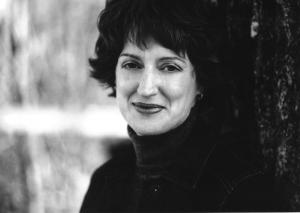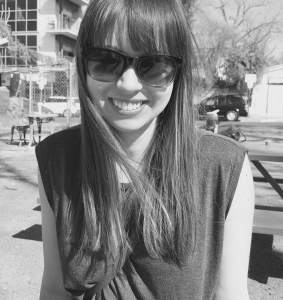Atlantic Canadian writers make good in CBC’s short story contest

The CBC announced yesterday that David Huebert, who grew up in Halifax, Nova Scotia, has won this year’s prestigious short story contest for his entry, “Enigma.”
Other Maritime writers on the longlist included New Brunswick’s Kelly Cooper and Katie Arthur of Dartmouth.
For Huebert, who is completing a PhD at Western University in London Ontario, the land where he grew up and the Atlantic ocean course through his work as a writer. “It’s always very deep in my thinking,” he says.
Huebert graduated from King’s/Dalhousie and used to work at Gus’s Pub, where he launched his collection of poetry, We are no longer the smart kids in class. Like many displaced Atlantic Canadians, he longs to be back home. Many of his short stories are set here, or deal with the tension of always wanting to go back.
The Atlantic is often featured, including in “Enigma,” a story of a woman grieving the death of her horse. Huebert’s PhD work focuses on animals in American literature, and his winning story focuses on what it means to love beyond our own species. “You will outlive most of your non-human friends,” he says. “This kind of love doesn’t translate into human relationships. Her grief is her own.”
Winning the CBC short story collection is, for Huebert, tremendous validation of years of hard work. “I spent so many years working in obscurity, like a lot of writers, and it feels like something finally opening up.”
He had entered the contest several times before – and never been longlisted – but this year he took a different approach, writing “Enigma” specifically with the CBC contest in mind. The CBC had reduced the maximum length to 1,500 words, which presented a new challenge for writers. Huebert embraced the very short form, trying to make as complete a story as possible. “It has almost no dialogue,” he notes.
This is clearly a writer with significant chops. Huebert has recently won short story contests with The Antigonish Review and Dalhousie Review. He is working to complete a short story collection called Peninsula Sinking.
Kelly Cooper
Kelly Cooper, who was longlisted for her story, “Levelling Up,” lives on a dairy farm in New Brunswick. Her 2004 short story collection, Eyehill, was a finalist for the Danuta Gleed Award and the Thomas Raddall Prize, and her first children’s book, If a Horse Had Words (told from a horse’s perspective) is due out next year.

“Levelling Up” is about a boy searching for a missing cat in a campground. “I provide hints of family dysfunction present and future, all the while attempting to weave imagery from a popular video game into the narrative,” Cooper says. “I think the fact that the story was long-listed means that maybe, just maybe, it didn’t fall apart. It feels great to be long-listed with all those wonderful writers.”
Thematically, Cooper’s work has evolved from focusing on relationships between men and women and small-town dynamics to the complexities of childhood. “Kids are both frighteningly vulnerable and amazingly resilient,” she says. “The tricky part is to write as if seeing the world through their eyes without allowing any grownup musings to creep into the text.”
As a writer with her fingers in all genres, Cooper is currently engrossed in a variety of projects. “I have been working on a novel for years, but I am often distracted by ideas for shorter pieces. Writing a novel feels like housework; it’s never done.”
She is working to complete a collection of short creative nonfiction, My Daughter’s Birthday and the Cat’s in Heat. This summer she’ll begin a new children’s book.
Katie Arthur
Katie Arthur makes her living as an advertising copywriter and her longlisted story, “You can call me Carson Puddy,” deals with “the type of contemporary online stalking that I think a lot of people find themselves dabbling in: an intense observation of strangers – people you’ve never actually met – via their social channels. Especially strangers whose lives appear to be much more pulled together than your own.”

This year marks the second time Arthur has been longlisted in the CBC short story contest. Her short story, “Only Her,” made the list in 2015.
“Both times I really had no expectations,” Arthur says. “Before the fall of 2014, I hadn’t written anything of my own for quite a while. So it was a super pleasant surprise that someone on the jury read and liked what I sent.”
In addition to her full-time work as a copywriter (she says advertising provides a needed relief from fiction and vice versa), Arthur is working on a longer piece about a young woman and musician who is “forced into starting over,” with help from novelist David Bergen through Humber College’s creative writing correspondence program. She hopes to finish the novel this summer.
The recognition from CBC is a delight but she’s not letting go to her head. “Any kind of positive reinforcement from the wider world is good. As long as you don’t let yourself think about it for too long.”
Written By:



